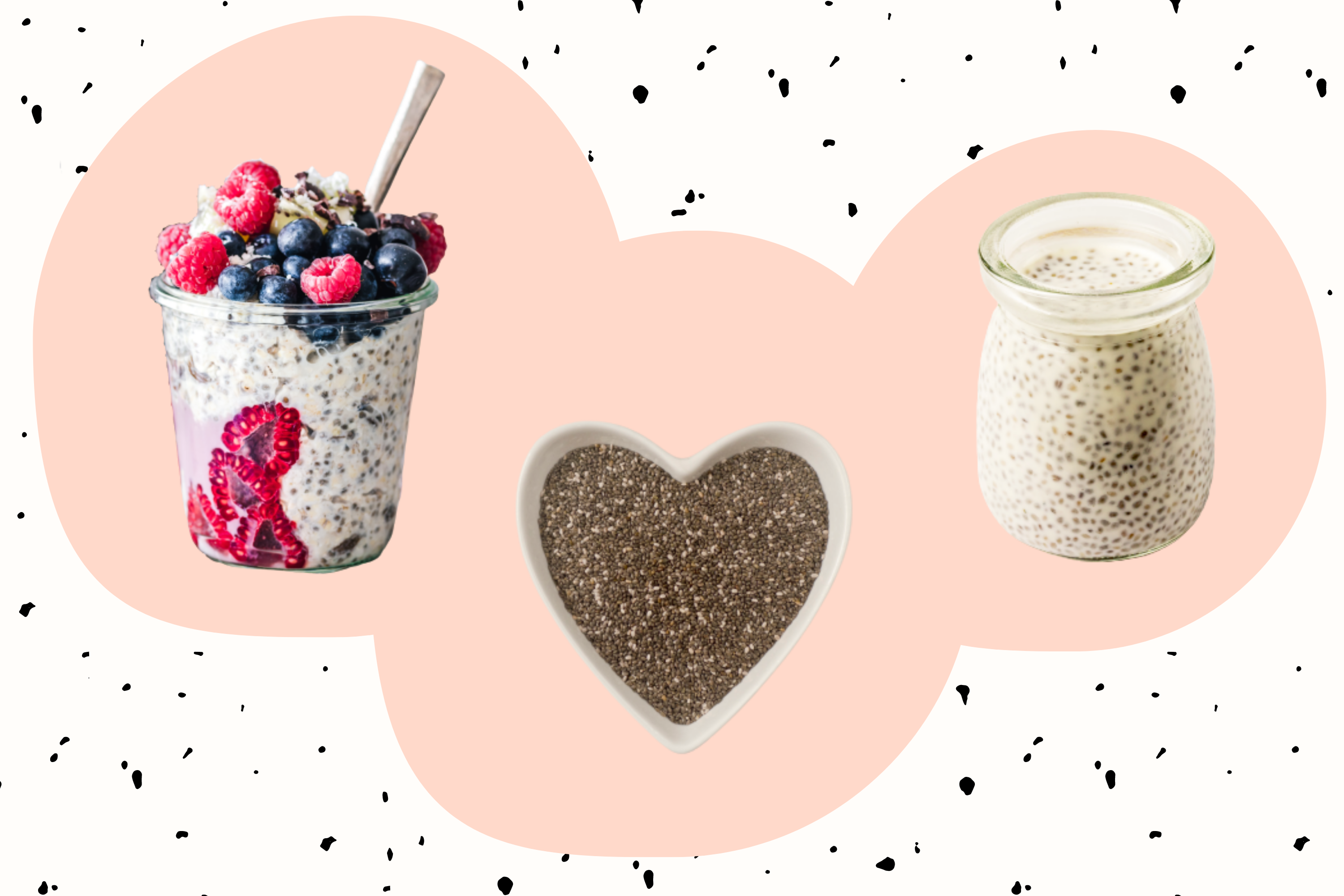Are chia seeds good for you? The scientific health benefits behind the tiny seeds
These little seeds manage to hold a lot of nutrients...


They're sprinkled on top of salads, drinks and desserts – but are chia seeds good for you? We've asked the experts.
It's one of the trendiest superfoods on the scene, that promises a plethora of good body benefits. But most might be surprised to learn that chia seeds have been around for millions of years. Having been a reliable food source for the ancient Aztecs and Mayans back in 3500 BC. Originating from Mexico and Central America, the tiny black seeds come from the Salvia Hispanica plant, a member of the mint family. And newer generations have been keen to incorporate them into their diet to boost energy and improve gut health.
'These seeds are great for your brain, weight management and are high in protein, omega-3 and healthy fibre - all in a big spoonful," says nutritionist Ellie Busby. She gives us the lowdown on the large benefits these little seeds carry.
Are chia seeds good for you?
Yes, both science and experts agree that chia seeds are good for you. With these small black seeds boasting many benefits to the body:
- Good source of protein and fibre
- A plant based protein
- Packed with Omega 3
- Good for heart, brain and mental health
"Chia seeds are a high-protein food and are almost a complete protein - meaning they contain all the essential amino acids," nutritionist Ellie Busby tells us. "They are high in omega-3 too (but easier to digest than flaxseeds), which makes them one of the top foods to eat for boosting brain power and fighting symptoms of depression," she adds.
In fact one Pakistan study shows that 65% of the oil found in chia seeds are omega-3. And this is what makes them both a good anti-inflammatory and healthy heart food. Which Ellie says helps "reduce your risk of diseases including dementia, high cholesterol and cardiovascular disease."
It's no wonder these little seeds have proven so popular of late, especially when analysing their nutritional breakdown. According to the Nutritional Science Research Institute, 100g of chia seeds contains 20g of protein, 32g of fat and 41g of fibre. As well as calcium, iron and other important nutrients.
GoodtoKnow Newsletter
Parenting advice, hot topics, best buys and family finance tips delivered straight to your inbox.
When this combination of fibre, fat and protein is absorbed it promotes a slow release of energy. Which in turn helps keep your blood sugar levels stable too.

Ellie Busby is a registered nutritionist and a member of The British Association for Nutrition and Lifestyle Medicine. With a background in biochemistry, she studied Chemistry (BSc) at University of Bristol and has a (MSc) in Clinical Nutrition from the University of Worcester, and has published work in a peer-reviewed journal. The founder of Vojo Health, she is passionate about personalised nutrition.
Claire Muszalski is a Registered Dietitian accredited by the Academy of Nutrition and Dietetics and a board-certified Health and Wellness Coach through the International Consortium for Health and Wellness Coaching. She has a Bachelor of Science in Biology and a Master’s degree in Clinical Dietetics and Nutrition from the University of Pittsburgh. She is also the resident dietician at MyProtein.
How much chia seeds should you eat a day?
You should aim to eat around 1.5 tablespoons of chia seeds a day. Nutritionist Ellie suggests this dosage as it helps you to reach "your recommended daily dose of omega 3" and the subsequent body benefits of these fatty acids.
The good news is that they're are really easy to incorporate into your diet too. Often transforming otherwise flavourless dishes. "They can turn liquids into thicker substances – think chia pudding or adding into your oatmeal," says dietitian Claire Muszalski.
Chia seeds serving suggestions:
- Chia pudding: No doubt you've heard of the classic chia pudding. When the seeds are left to soak in water overnight, they absorb the liquid to form a gel. This is commonly known as a ‘chia pudding’. You can add flavour to it by using fruit juice or milk to soak instead of water. Or you can also add spices like ginger and cinnamon, or even a little cacao or honey to sweeten it.
- Porridge: Adding these seeds to your diet can be as simple as sprinkling them on to your breakfast cereal. Take for example our delicious overnight oats recipe with chocolate and peanut butter.
- Soups and stews: Soaked chia seeds can be used to thicken soups and stews – all you have to do is soak them for a few hours or overnight, and add them to your dishes as a thickening agent.
- Baking: Ground chia seeds can be used as a replacement for eggs in egg-free baking. You can buy them already ground or you can grind them at home using a coffee grinder. Use 1 tbsp of the ground seeds and 3 tbsp of water to replace one large egg. But bear in mind all recipes are different so it might take a bit of experimenting to find the right ratio. Deliciously Ella is one such fan of chia seeds in baking and has added them to her tasty orange and cardamom cookies recipe.
- In water: Known as agua fresca de chia. The seed water is simply the seeds stirred with water, lime juice and sugar to make a cold drink.
- Toasted chia seeds: Adding chia seeds to salads, dishes with couscous or even your morning porridge might be the easiest way to incorporate chia seeds in your diet. But you may want to toast them before you do, as this brings out the flavour and texture. To toast, toss them in the pan or baking tray at low temperature. Just make sure you don’t burn them as this would ruin their nutritional value. On a high heat this should only take a minute or two.
Are chia seeds good for everyone?
The health benefits of chia seeds make them generally acceptable for everyone. However too much of a good thing can cause problems for those with digestive conditions like Irritable Bowel Syndrome (IBS), Diverticulitis and Crohns disease. This is due to the seeds' high-fibre content. Which may irritate the stomach, especially if you're eating them without being pre-soaked. As is often the case with diets, consult with your doctor if you are concerned about your consumption.
Video of the Week:

Emily Stedman is the former Features Editor for GoodTo covering all things TV, entertainment, royal, lifestyle, health and wellbeing. Boasting an encyclopaedic knowledge on all things TV, celebrity and royals, career highlights include working at HELLO! Magazine and as a royal researcher to Diana biographer Andrew Morton on his book Meghan: A Hollywood Princess. In her spare time, Emily can be found eating her way around London, swimming at her local Lido or curled up on the sofa binging the next best Netflix show.